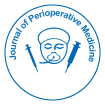
Journal of Perioperative Medicine
Open Access
ISSN: 2684-1290

ISSN: 2684-1290
Commentary - (2023)Volume 6, Issue 6
Mycophenolate, a immunosuppressive therapy, has emerged as a breakthrough medication with the potential to transform the transplant medicine and autoimmune disorders. This potent drug, originally derived from fungi, has proven to be a valuable asset in preventing organ rejection and managing various autoimmune conditions. In this article, we delve into the intricacies of mycophenolate, exploring its mechanisms, applications, and the impact it has had on enhancing patient outcomes.
Understanding mycophenolate
Mycophenolate belongs to a class of medications known as immunosuppressants. It is primarily used to prevent the rejection of transplanted organs, such as kidneys, hearts, and livers. The drug works by inhibiting the proliferation of immune cells, particularly T and B lymphocytes, which play a pivotal role in organ rejection. Unlike some other immunosuppressive drugs, mycophenolate specifically targets the DNA synthesis pathway of these cells, impeding their ability to replicate and mount an immune response against the transplanted organ.
Applications in transplant medicine
The success of organ transplantation is often hindered by the recipient's immune system, which recognizes the transplanted organ as foreign and mounts an attack. Mycophenolate has proven to be a game-changer in preventing this immune response, significantly reducing the risk of organ rejection. Used in combination with other immunosuppressive medications, mycophenolate forms a significant part of the standard regimen post-transplant.
One of the key advantages of mycophenolate is its versatility in transplantation settings. It is commonly employed in kidney, heart, liver, and lung transplants, showcasing its efficacy across various organs. The drug's ability to minimize rejection episodes contributes to the long-term success of transplant procedures, improving both the quality and duration of life for transplant recipients.
Mycophenolate in autoimmune disorders
Beyond its applications in transplantation, mycophenolate has demonstrated efficacy in managing several autoimmune disorders. Conditions such as lupus, rheumatoid arthritis, and certain types of vasculitis involve an overactive immune system attacking the body's tissues. Mycophenolate helps modulate this immune response, providing relief to patients suffering from these debilitating conditions.
The drug's impact on autoimmune disorders extends beyond symptom management. By suppressing the immune system's aberrant activity, mycophenolate can slow the progression of these diseases, preventing further damage to vital organs and improving overall patient outcomes. This dual functionality makes mycophenolate a valuable asset in the arsenal against autoimmune disorders.
Challenges and considerations
While mycophenolate has proven to be highly effective, it is not without its challenges. Like all immunosuppressive medications, mycophenolate increases the risk of infections and requires careful monitoring to balance its benefits and potential side effects. Patients taking mycophenolate need regular assessments to ensure that their immune function remains within a safe range.
Mycophenolate stands as a testament to the strides made in immunosuppressive therapy. From its roots in fungal origins to its widespread applications in transplantation and autoimmune disorders, mycophenolate has a potential to prevent organ rejection due to its to versatile medication. As research continues to unravel the intricacies of the immune system, mycophenolate is likely to play an increasingly pivotal role in shaping the future of medicine, those who are in need of organ transplants and relief from autoimmune conditions.
Citation: Zhou X (2023) Mycophenolate Immunosuppressive Therapy and its Prevention in Autoimmune Disorders. J Perioper Med. 6:198.
Received: 06-Nov-2023, Manuscript No. JPME-23-28129; Editor assigned: 08-Nov-2023, Pre QC No. JPME-23-28129 (PQ); Reviewed: 22-Nov-2023, QC No. JPME-23-28129; Revised: 29-Nov-2023, Manuscript No. JPME-23-28129 (R); Published: 06-Dec-2023 , DOI: 10.35248/2684-1290.23.6.198
Copyright: © 2023 Zhou X. This is an open-access article distributed under the terms of the Creative Commons Attribution License, which permits unrestricted use, distribution, and reproduction in any medium, provided the original author and source are credited.